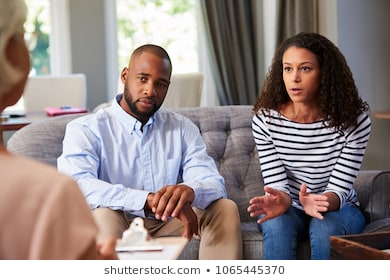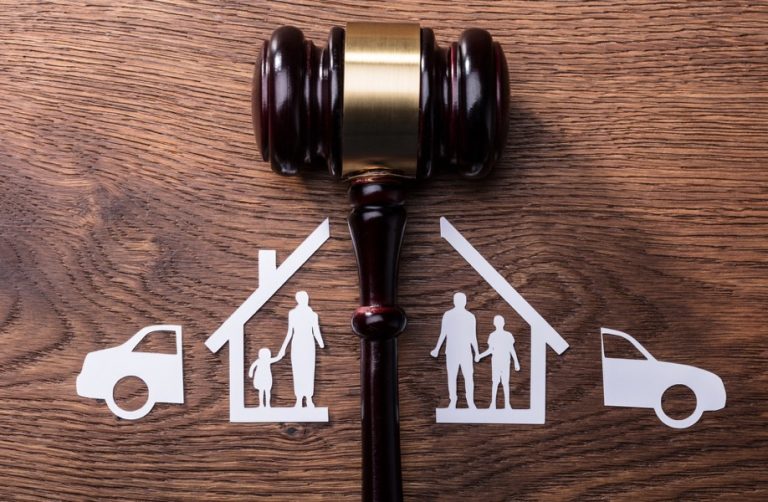Marriage counseling, also known as couples therapy, helps couples of all types and races make basic decisions that will help strengthen their relationship or marriage.
In marriage counseling, there is an opportunity for you and your partner to explore your desires and goals. It can also help you through conflict challenges.
Marriage Counseling involves both partners, but sometimes one may choose to work with the therapist alone, depending on the situation. This improves relationships and helps in resolving interpersonal conflict.
A relationship may be perfect at first; however, along the line, problems are inevitable. These problems may be a result of a change in financial status, anger, jealousy, or lack of communication.
Most times, it is difficult to handle these problems, and they often escalate to much bigger ones. This is where counseling comes in. You just don’t approach anyone for help. It is the work of a counselor.
A counselor or therapist should be licensed with their graduate or post-graduate degree in order to avoid causing more damage to people’s relationships.
Marriage counseling is not just for married couples. It can also help couples who plan to get married. About 70 percent of couples receiving treatment from trained counselors or therapists finished with positive results.
What is marriage counseling?
Marriage counseling, often known as couples therapy, assists married and unmarried couples in understanding and resolving difficulties and improving their relationship. Counseling teaches couples how to communicate more effectively, resolve conflicts, solve problems, and even quarrel in a healthier manner.
Marriage counseling is usually done by marriage and family therapists, who are licensed therapists. These therapists offer the same mental health treatments as other therapists but with a focus on the relationship between two people.
Marriage counseling is frequently brief. You might only need a few sessions to get over a problem. Alternatively, if your relationship has significantly worsened, you may require marriage counseling for several months. A marriage counselor is often seen once a week, similar to individual counseling.
Who can benefit from marriage counseling?
The majority of marriages and other relationships aren’t without flaws. In a relationship, each person brings his or her beliefs, values, opinions, and personal experience, which may or may not coincide with their partner’s. Those differences don’t always imply that your partnership will be tumultuous. Conversely, differences can be beneficial – you know what they say about opposites attracting. These distinctions can also aid people in comprehending, respecting, and accepting conflicting viewpoints and cultures.
Relationships, on the other hand, can be put to the test. After some time together, differences or habits that you once thought endearing may grate on your nerves. Specific concerns in a relationship, such as an extramarital affair or a loss of sexual attraction, can sometimes cause problems. In other instances, communication and compassion gradually deteriorate.
Distress in a relationship, regardless of the source, can lead to excessive stress, tension, melancholy, worry, fear, and other issues. You could be hoping that your relationship problems would go away alone. However, if a terrible relationship is allowed to fester, it will only get worse, eventually leading to physical or psychological issues such as despair. People feel driven to take sides in a dysfunctional relationship, which can cause problems at work and affect other family members or even friendships.
Here are typical issues that marriage counseling can help you and a spouse or partner cope with:
- Infidelity
- Divorce
- Substance abuse
- Physical or mental conditions
- Same-sex relationship issues
- Cultural clashes
- Finances
- Unemployment
- Blended families
- Communication problems
- Sexual difficulties
- Conflicts about child-rearing
- Infertility
- Anger
- Changing roles, such as retirement
How does marriage counseling work?
Couples or partners are usually brought together for joint therapy sessions in marriage counseling. The counselor or therapist assists couples in identifying and comprehending the roots of their difficulties and attempting to resolve them. You and your partner will discuss the positive and negative aspects of your relationship.
Marriage counseling will assist you in developing skills that will help you strengthen your relationship. These abilities could include open communication, collaborative problem-solving, and reasonable discussion of differences. In some circumstances, such as those involving mental illness or substance misuse, your marriage counselor may collaborate with your other healthcare providers to develop a comprehensive treatment plan.
It may be difficult to discuss your issues with a marriage counselor. It’s possible that your sessions will be silent as you and your partner rage over perceived wrongdoings. Alternatively, you can bring your fights to the sessions, yelling and arguing. Both are acceptable. Your therapist can help you deal with the emotions and tension by acting as a mediator or referee. In these conflicts, your marriage counselor should not take sides.
After just a few sessions, you might notice that your relationship is improving. Conversely, you might eventually realize that your disagreements are irreconcilable and that it’s best to call it quits.
What if your spouse refuses to participate in marriage counseling? You are free to go on your own. When only one spouse is willing to go to treatment, it may be more difficult to repair the relationship. However, understanding more about your reactions and conduct in the relationship can still be beneficial.
Importance Of Marriage Counseling
Marriage requires commitment and hard work. The problems you and your partner encounter might be a strain on your relationship. Therefore, it is important to seek the help of a counselor.
Some importance or benefits of marriage counseling may include:
- Counseling helps in improving couples’ communication skills.
- Marriage counseling provides a means for couples to be accountable to each other.
- It gives couples the opportunity to spend time with each other, as the case may be.
- It also helps couples gain a better understanding of each other.
- Marriage counseling can help in curtailing anger, sexual difficulties, and infidelity.
Marriage Counseling Questions
What kind of questions are often asked by the counselor or therapist during sessions?
Here are a few
- Why did you get married?
- What makes you happy in your marriage?
- What makes you sad?
- How is your spiritual life? (for believers)
- Do you have any role models in your marriage?
- How do you resolve conflict as a couple?
- How is your communication with your partner?
- What do you see as strengths or weaknesses in your marriage?
- How do you handle anger?
- How do you make decisions with your spouse?
These are the kinds of questions you should expect. Worried about the ones you should ask?
Here’s a little help
- Can our marriage be revived?
- What do we do to make each other feel wanted or desirable again?
- How can we spice things up or renew the spark in our marriage?
- Can I get over his or her betrayal?
- How do I forgive or move on?
Tips For A Successful Marriage Counseling
Baring your soul to a counselor may be intimidating at first, but then you must remember it has helped a lot of couples.
In order to have a successful session, it’s important to discuss with your partner before visiting your counselor. Ensure you share the same goal of making your marriage work.
Don’t just back off. Give each other time to heal. It may be longer than usual, but it’s ultimately worth it.
Make up your mind to work on yourself if necessary. This helps a lot.
Endeavor to share your feelings. Confide only in friends and family that have your interest at heart.
Focus on mending your relationship. Make your counseling sessions a priority.
Does counseling really help marriages?
The bottom line. Marriage/couples counseling can help you work through conflicts and strengthen your bond. It’s most likely to be successful when both partners are willing and committed to the process. Online therapy can also be as effective as in-person counseling.
What does a marriage Counsellor do?
What is marriage counseling? Marriage counseling, sometimes known as couples therapy, helps couples (whether married or not) understand and resolve their conflicts and improve their relationship.
What’s the difference between couples therapy and marriage counseling?
Marriage counseling tends to deal with present-day events rather than the past. It focuses on the ‘now’ and the challenges of married life so that you can get your relationship back on track. Couples therapy deals with the present day and any history that causes unhealthy patterns of relating.



